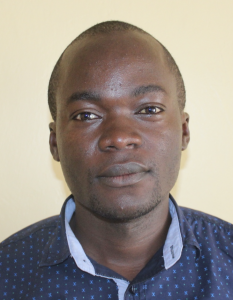In 2011, the African Divine Church (ADC) founded Bahati ADC Primary School. Today, the school serves 416 students and 15 teachers and staff. The school fairs well in academics and even in co-curricular activities, accomplishments that shine brighter when compared to the severe water crisis the pupils face every day.
The only water source on school grounds is a small plastic rain tank. As this tank is quickly and often emptied, the school requires students to arrive in school with water each day. Some students fetch water from their homes, which may or may not have safe sources of water.
Other students fetch water along the way to school at whichever sources they find to ease their burden of carrying the heavy container along with their books and trying to get to class on time. Students commonly choose a muddy river along the road to fetch water, despite the water being unquestionably unsafe for consumption.
"We have really been affected due to the lack of clean and safe water in the school. This has contributed to more time used in carrying water from our homes. Hence we cannot attend morning classes. Secondly, we are forced to do manual cleaning twice a week, hence raising concerns on our hygiene standards which contribute to illnesses amongst us," explained pupil Ivyline. She added that the prospect of the 75,000-liter rain tank in her school would be "a new dawn in our lives as pupils."
In addition to missing their morning lessons, as Ivyline said, pupils often have to leave school mid-day to fetch more water for the school's use. This eats into their learning time and drains students of their energy and focus if they return. Sometimes, students do not return in the afternoon, too dismayed by the routine and lack of learning to make an effort to walk back.
"This school has been facing challenges emanating from a lack of water. This has contributed to poor hygiene standards. Accessing clean water - it's a challenge. Most of our pupils are missing classes due to the lack of water which has contributed to slow syllabus coverage. Teachers sometimes are forced to carry or buy water to drink, and many of our classes are not cleaned daily," said teacher Boniface Musembi.
Even if some students fetch clean water from home, most pupils' containers are filthy both inside and out, contaminating the water inside them regardless of its original quality. Because water is combined for use at school, even one contaminated source means the entire school is at risk of water-related illnesses.
Students frequently report stomachaches, and some have even confirmed typhoid and cholera cases after drinking water at school. These illnesses keep students out of class while they seek medical treatment. Economically, a majority of school parents are low-income earners. That means the little money they earn is being lost to the high costs of medication for their children's water-related illnesses contracted at school.
What We Can Do:
Rain Tank
A 75,000-liter rainwater catchment tank will help alleviate the water crisis at this school. The school will help collect the needed construction materials such as sand, bricks, rocks, and water for mixing cement. We will complement their materials by providing an expert team of artisans, tools, hardware, and the guttering system. Once finished, this tank will begin catching rainfall used by the school’s students and staff for drinking, handwashing, cooking, cleaning, and much more.
The school and we strongly believe that all of these components will work together to improve standards at this school, which will help lead to better student academic performance and unlock the potential for these students to live better, healthier lives.
Handwashing Stations
The student health club will oversee the two new handwashing stations we will provide and ensure they are kept clean and in working condition. The club leaders will fill the handwashing stations with water daily and make sure they are always supplied with a cleaning agent such as soap or ash.
VIP Latrines
Two triple-door latrine blocks will be constructed with local materials that the school will help gather. Three doors will serve the girls, and three doors will serve the boys. These new latrines will have cement floors designed to be easy to use and clean. And with a rain tank right on school property, there should be enough water to keep them clean.
Training on Health, Hygiene, COVID-19, and More
We will hold a one-day intensive training session with students, teachers, and parents. This training will cover a wide range of topics, including COVID-19 symptoms, transmission routes, prevention; personal and environmental hygiene; and the operation and maintenance of the rain tank, latrines, and handwashing stations. There will be a special emphasis on handwashing.
Our team of facilitators will use various methods to train, including participatory hygiene and sanitation transformation and asset-based community development. We will initiate a student health club, which will prepare students to lead other pupils into healthy habits at school and home. We will also lead lectures, group discussions and provide illustrative handouts to teach health topics and ways to promote good hygiene practices, including handwashing and water treatment. We will then conduct a series of follow-up training before transitioning to our regularly scheduled support visits throughout the year.

 Rainwater Catchment
Rainwater Catchment
 Rehabilitation Project
Rehabilitation Project




































